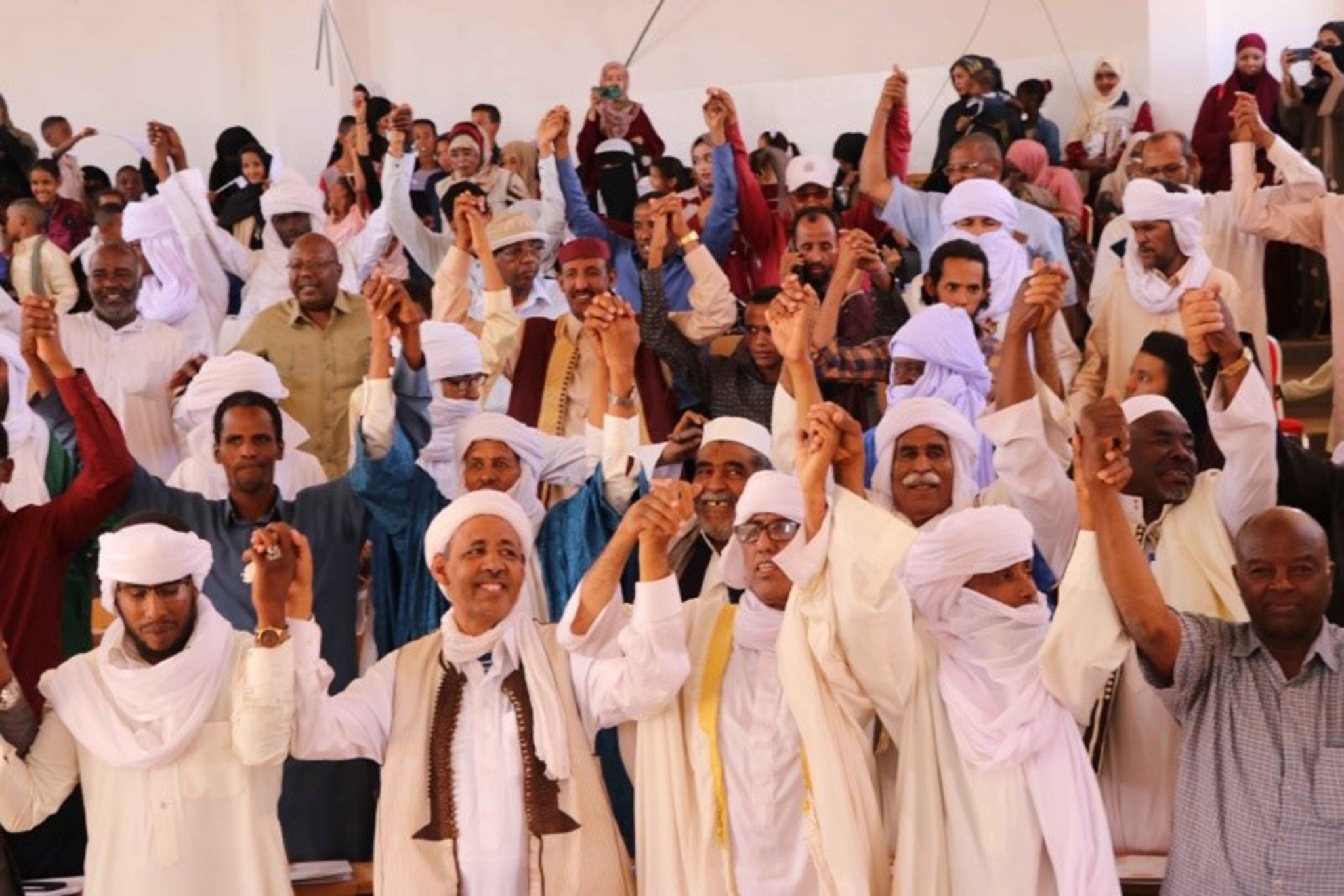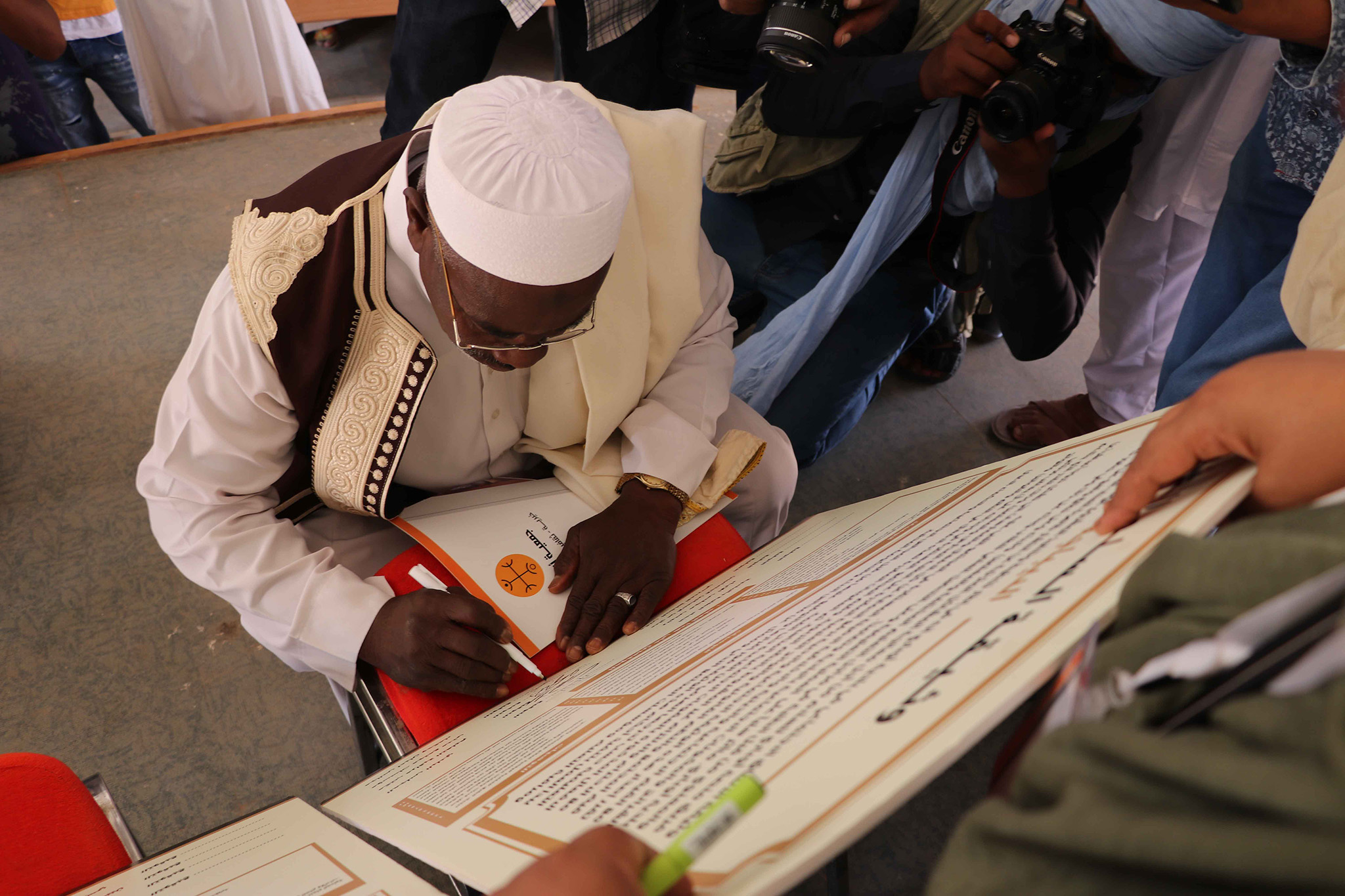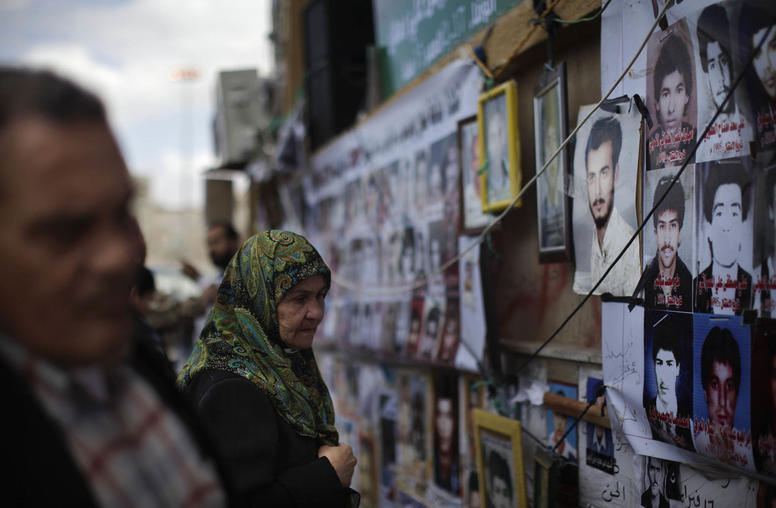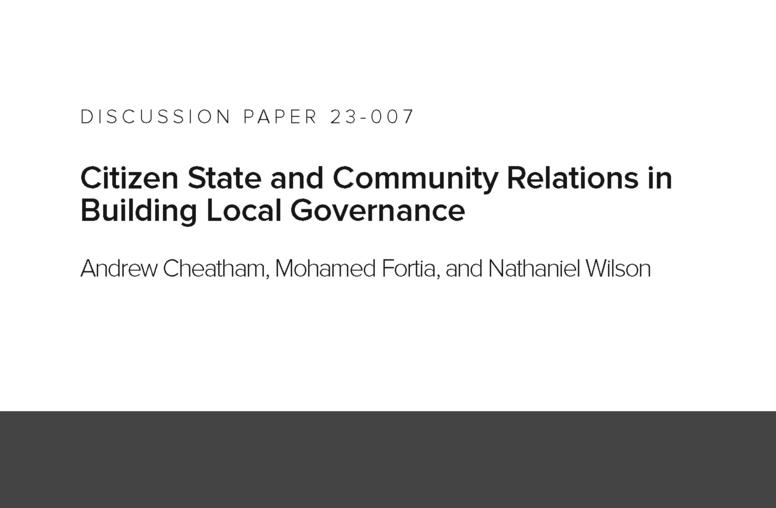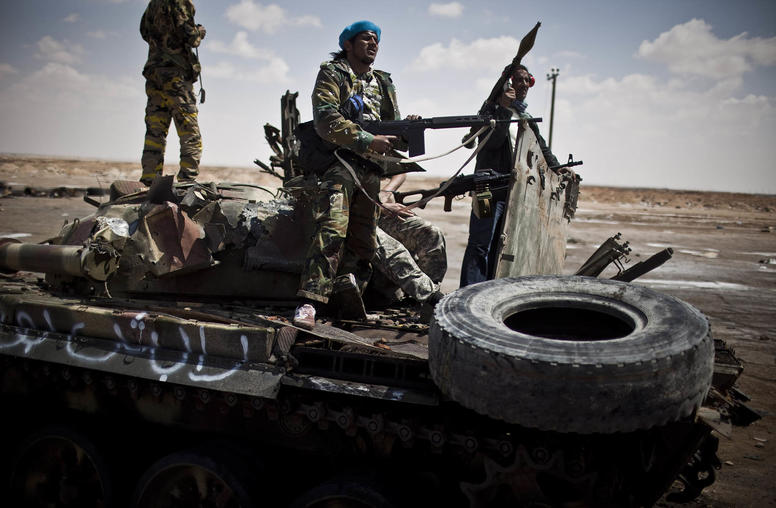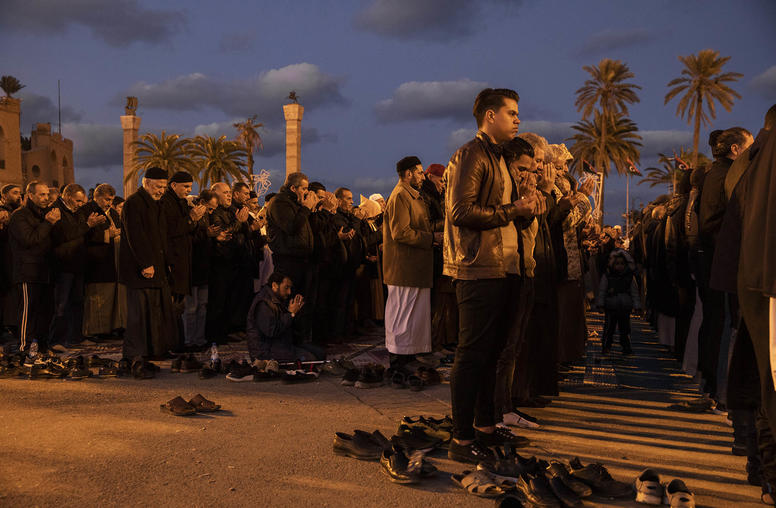When Eaz Aldin Jaray was shot dead in September in the southern Libyan city of Ubari, what initially followed was typical—unfortunately—of conflicts in the lawless region in the post-Qaddafi era.
The trouble had begun after Jaray, a young member of the Tebu tribe, was accused of joining tribal confederates in taking weapons from a member of the Tuareg tribe. His killing, in turn, prompted Tebu youth to kidnap a Tuareg elder, which was followed by a reprisal snatch of two elders from the Tebu. As tensions mounted in the city, which had endured a tribal war five years ago, both the Tuareg and Tebu began stockpiling weapons and scouting strategic positions for a battle.
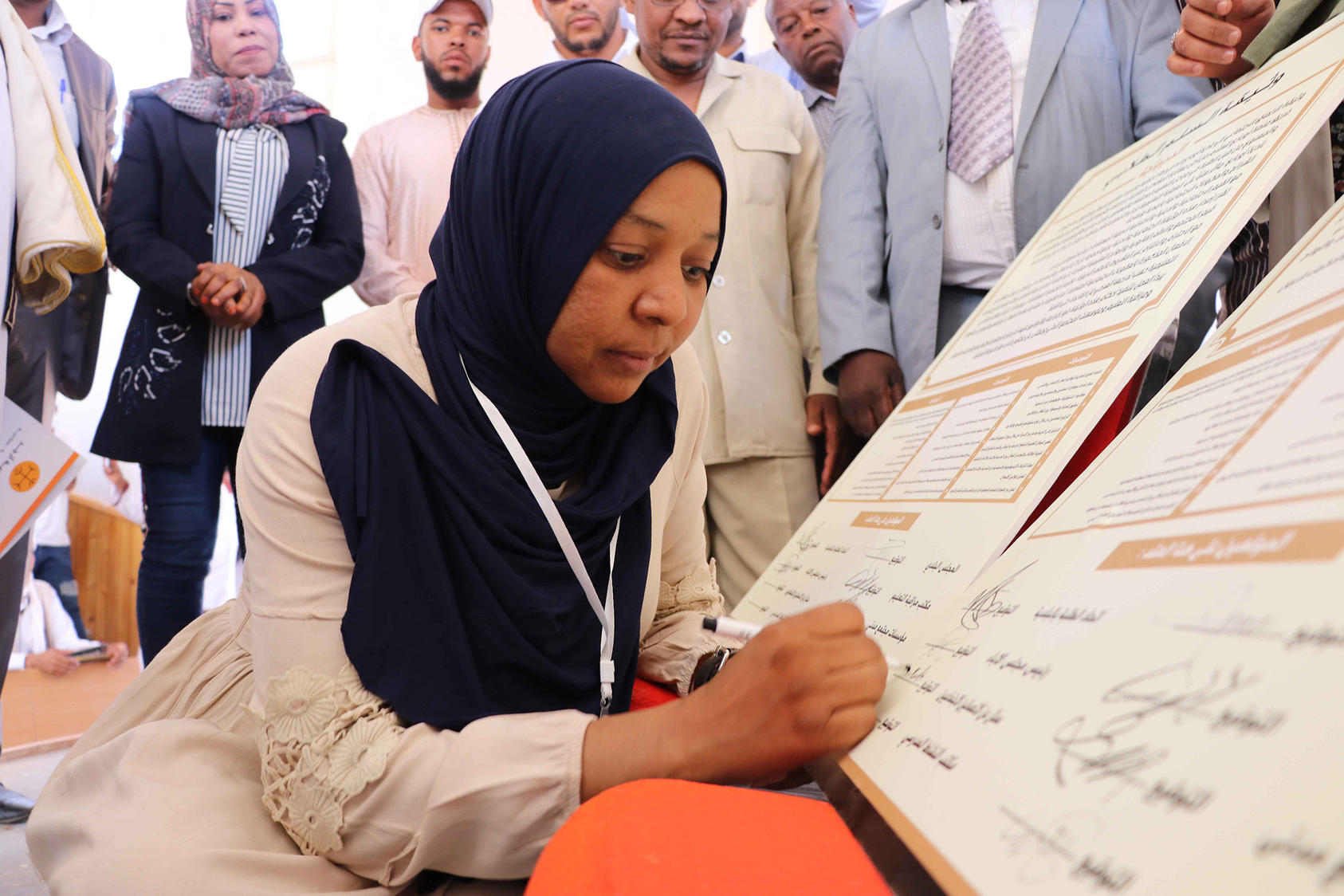
Then the unthinkable happened.
Jaray’s mother, Fatima, a key community figure who had been working with a USIP dialogue project to stem violence in the city’s schools, stepped forward to speak out against the preparations for a fight.
In a heartfelt interview with a media outlet, Fatima told how she had implored the community not to resort to violence, saying, “We want peace … we are done with war, even if the person killed is my son, my flesh and blood.” She said that she had phoned and even interrupted influential Tebu leaders who were meeting in preparation for conflict, calling for calm. “After my son was killed, I asked them not burn a house for me or kill an innocent—don’t even kill the person who killed my son.”
Fatima’s public stance took tremendous self-restraint and courage. It almost certainly prevented an outbreak of active conflict in Ubari.
School Violence
But even before her son’s death, Fatima had been trying to push the city in a more peaceful direction through involvement with USIP’s Community-Based Dialogues for Reconciliation project. Her apparent success in averting violence shows that efforts for peace don’t need to begin at the national level. A dedicated group of individuals engaging their communities can contribute significantly to the wider effort for peace.
A city of 30,000 in Libya’s unstable and marginalized Fezzan region, Ubari is one of three locations in Libya where the USIP dialogue project is underway in partnership with the State Department’s Bureau of Democracy, Human Rights, and Labor. The goal in general is to promote reconciliation, social cohesion, and sustainable peace. In Ubari, the Institute, in cooperation with its local partner the Azgar Association—a small, influential, women-led organization based in the city—is seeking to get tribes working together toward the common goal of reducing violence in schools.
Schools are the only place where the city’s residents interact significantly across tribal lines. That creates opportunities for dialogue but also for the violence that breaks out frequently in schools to spill into the wider community.
Ubari remains in a cold peace established at the end at the 2014-2016 war between its Tebu and Tuareg inhabitants. Given the sensitive, post-conflict state of the city, USIP and its local partners decided the best path to addressing tribal violence would be to encourage work on a common problem. Focusing on tangible issues that affect the whole community, and bringing diverse people together to solve them, might lead the tribes to look toward a common future rather than a contested past.
That future could look bright: Ubari boasts tourist attractions in desert lakes and beautiful scenery. It also sits near two large oil fields, including Libya’s largest, making it a strategic city where stability is vital for the health of Libyan and global economies.
Fruits of Dialogue
To tackle school violence, USIP and Azgar Association trained a cadre of key community actors, including Fatima, in conflict resolution and dialogue facilitation and then helped mentor them through facilitating seven dialogue sessions. These individuals are influential, representative of the city’s demographics and committed to peace. The participants in the July meetings included teachers, principals, students, education officials, members of the municipal council and other community members.
In the last two sessions, the group drafted an agreement to be signed by prominent tribal leaders and other influential figures from Ubari. Its core provision was a pledge that tribes would revoke their customary protection from any member who perpetrated violence in school.
USIP local staff and partners planned to have the pact signed on International Peace Day at what might be considered an Ubari peace festival.
Given the tensions unleashed by Jaray’s death, however, USIP and Azgar began to question the wisdom of their plan. USIP’s local project officer described the city as “a ghost town” in the days following the incident; the market was closed, and people, save for fighters, were afraid to be on the streets. Would the signing calm the situation or potentially inflame it? Eventually the USIP-Azgar team decided, after assessing the situation, that the benefits of a public commitment to solving a core community problem outweighed the small risk of triggering more conflict, said Meriam Amghar, head of Azgar.
Peace Day Surprise
What happened on Sept. 21, the United Nation’s annual Day of International Peace, exceeded anyone’s expectations. As Selim Mohamed of the Ubari Youth Association put it: “This is a historic day of peace within the city of Ubari.” Its citizens, he said, were “cultivating a spirit of harmony, pride, and respect.”
TV, radio stations and social media covered the signing of the school violence pact, which, symbolically, was held in the Faculty of Education at the University of Ubari, a building damaged in the 2014-2016 war and set up for the event by the Municipality of Ubari.
Following the signing ceremony, about 200 people joined the Peace Day celebration, including students, teachers, Girl Guides and Scouts, the Libyan Red Crescent Association and the Al Disa Horse and Equestrian Club. The day featured cultural exhibits from the Tebu and Tuareg tribes and the city’s third tribal group, the Ahali. USIP also worked closely with a media organization based in Ghat, another city in Fezzan, to document the day and extend its impact to other areas.
USIP honored Fatima publicly for her peacemaking efforts, although she was unable to attend because she was mourning.
The signing and the social event were the first since the end of the war to include people from all three tribes and bring out women and children. The Tebu and Tuareg occupied adjacent tents and danced and socialized with each another throughout the day.
A Changing City
The following weeks saw additional positive outcomes. The Red Crescent Society, which left Ubari years ago because of the war, met with the Municipal Council and expressed interest in coming back. The United Nations World Food Programme (WFP) said that as a result of the new spirit of cooperation it will focus an upcoming project on Ubari, one that will also tie into USIP’s dialogue work.
Plans for post-dialogue activity include forming school-based mothers’ councils to monitor student violence. The councils would strengthen the underutilized hand of women in stemming not only violence in schools, but also in the wider conflict community. Mothers who saw their sons fighting in 2014-2016 are motivated and well positioned to deter youth from picking up weapons again.
Women also can help promote reconciliation with former enemies in Ubari, as Fatima has proven.
“I advise mothers of sons who were killed with treachery or injustice to be to be patient and look at the others,” said Fatima. “Give the living a chance in life. If we as mothers understand this, [we] will bring peace and security.”
Abigail Corey is a USIP program assistant for Libya, based in Tunis.
